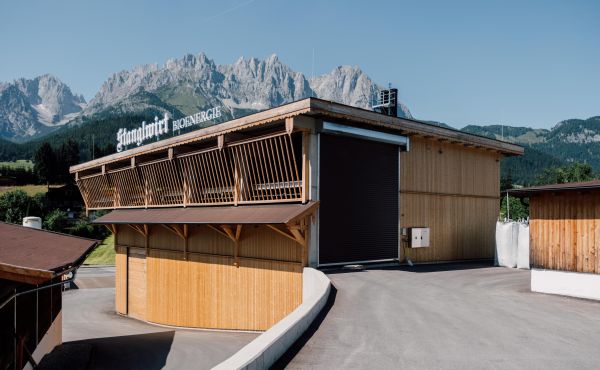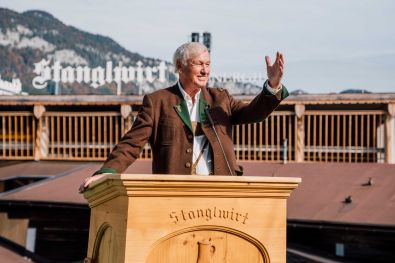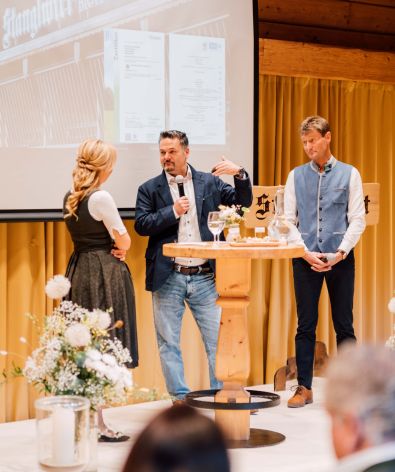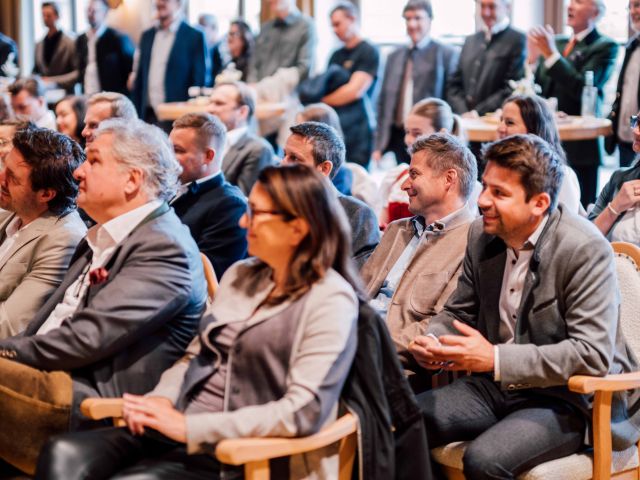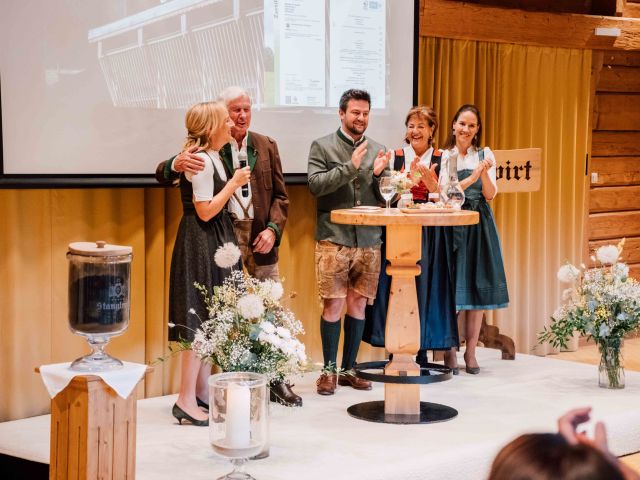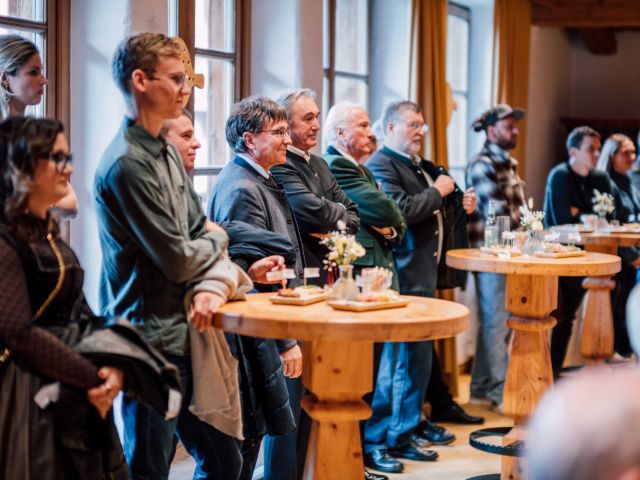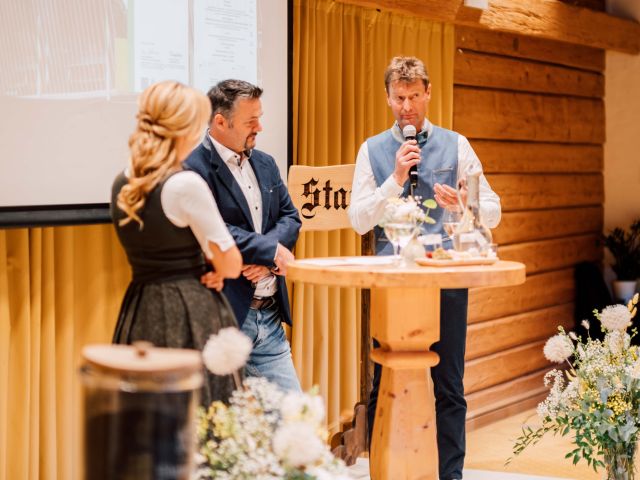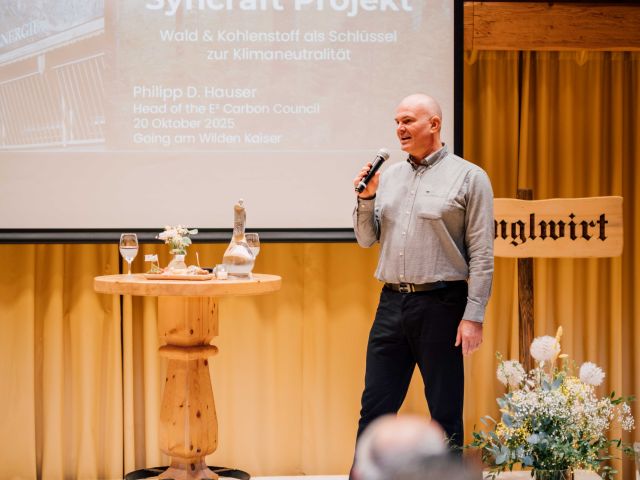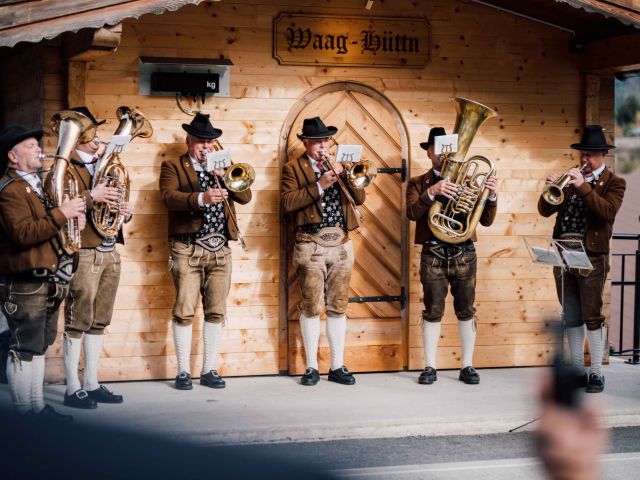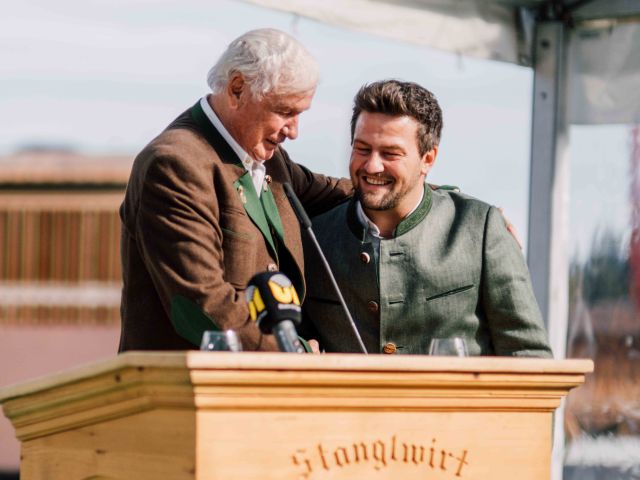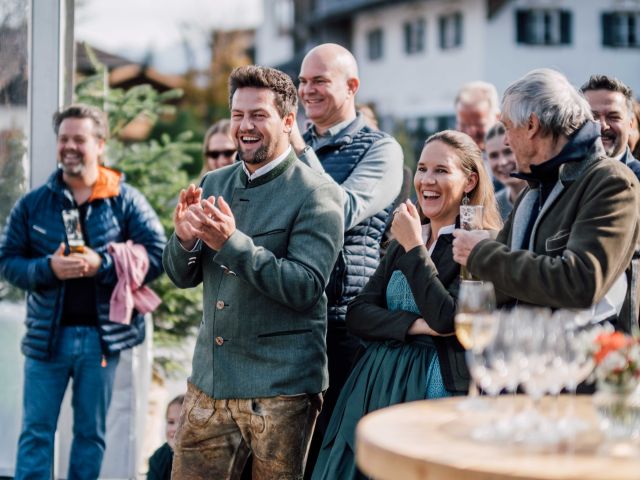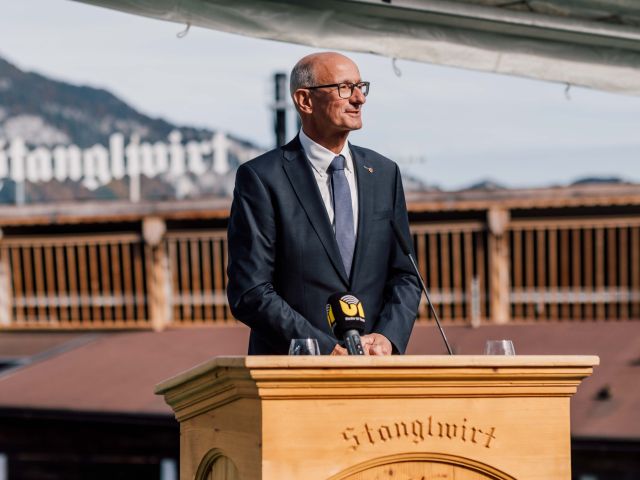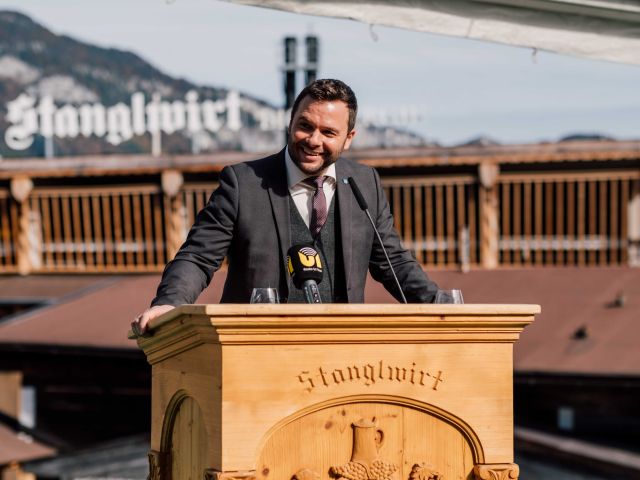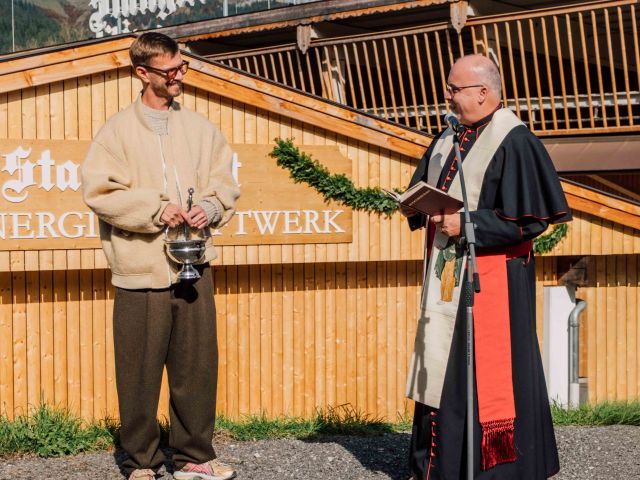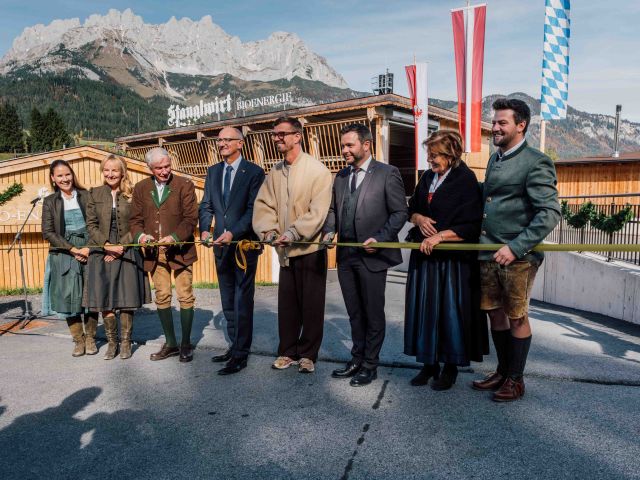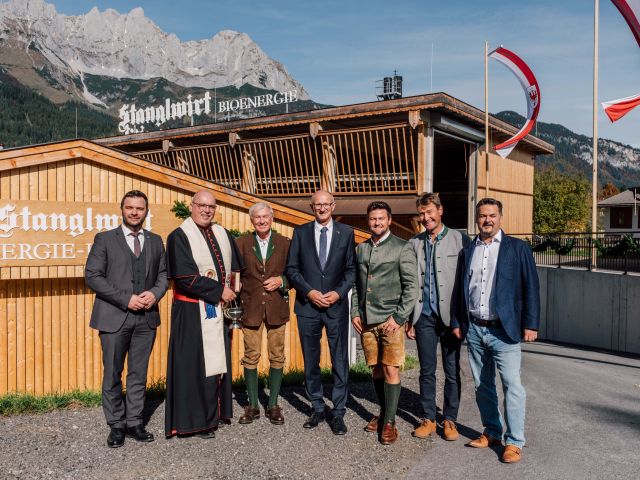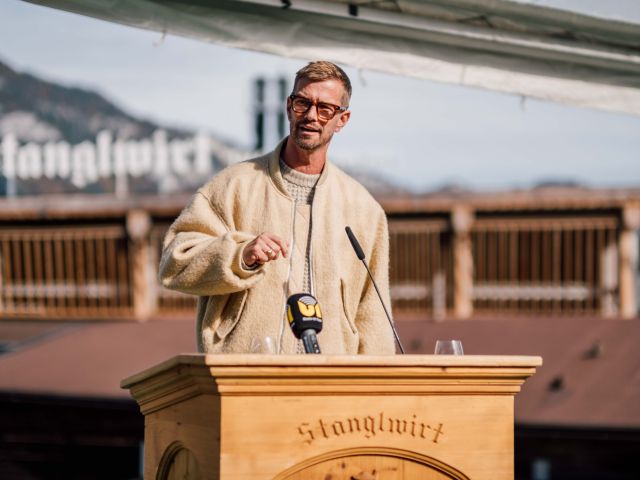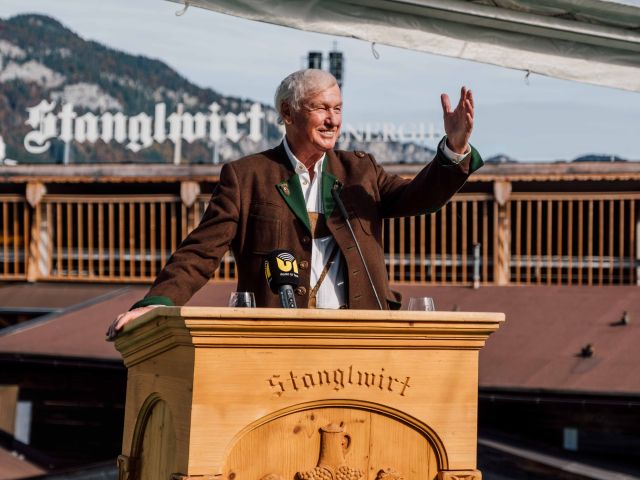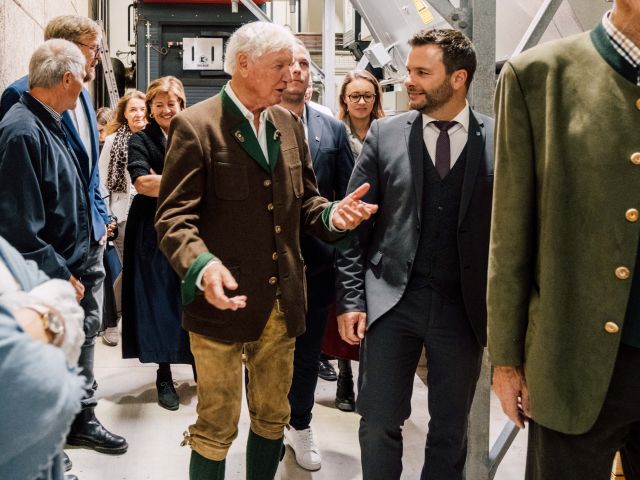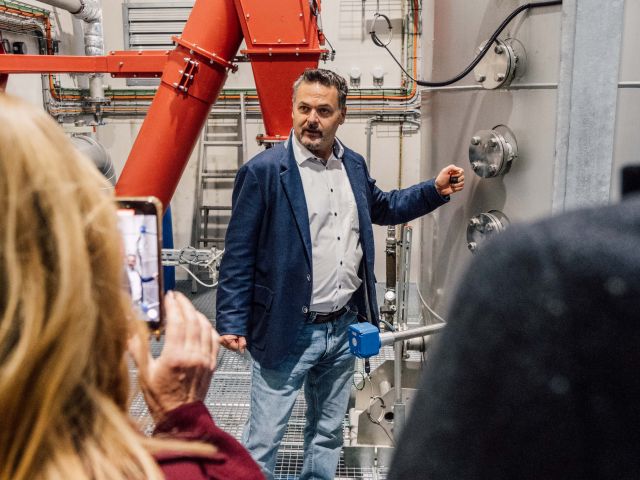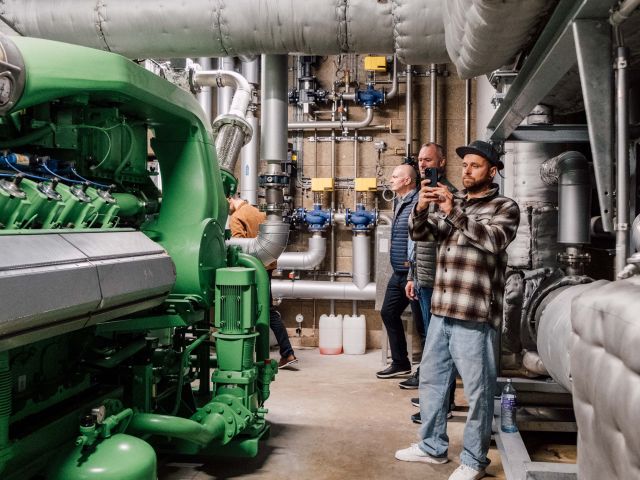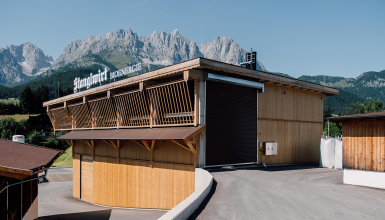One year after the successful commissioning of “Stanglwirt BIO‑Energy”, the Hauser family invited guests to the presentation of their power plant. The innovative flagship project, which produces electricity, heat and bio‑char from regional wood chips, symbolises the lived sustainability ethos of Stanglwirt – and was celebrated by numerous guests from business, politics and environmental sectors.
Prominent support came from Joko Winterscheidt, a German presenter and long‑standing environmental and climate ambassador, who took on the sponsorship of the plant. With his commitment to sustainable projects and his public advocacy for climate protection, Winterscheidt is seen as a credible advocate for responsible action and conscious consumption.
Connection to nature and environmental protection have been lived values at Stanglwirt, the “only organic farm with an integrated luxury hotel”, since its origin in 1609 — with innovation and great naturalness.
Also, Junior‑boss Johannes Hauser, responsible for agriculture and energy supply, expressed his pride: “We wanted a solution that not only covers our own energy requirement, but at the same time promotes regional value creation and climate protection. Here at Stanglwirt it works every day – in harmony with our philosophy of sustainable business and taking responsibility.”
The heart of the new wood‑fuelled power plant is an innovative wood gasifier system by the Tyrolean company Syncraft, which converts untreated, PEFC RED II‑certified wood chips and damaged timber into wood gas. This is used in a highly efficient INNIO Jenbacher gas engine to generate electricity and heat. The resulting heat flows directly into the hotel operation and into fuel drying – a prime example of high‑level combined heat and power.
With an electrical capacity of up to 550 kW, the system covers a large part of Stanglwirt’s energy demand and uses the raw material optimally — sustainably, low‑emission and cost‑effectively.
In total around 11 million euros were invested in the project – approximately 3.5 million euros of this were for the technology developed by Syncraft, the rest for construction, infrastructure and accompanying measures. A clear commitment by Stanglwirt to regional value creation and long‑term sustainability.
Also Elisabeth Hauser-Benz, junior boss and responsible for finance and employees, confirms: “For us it is crucial that ecological responsibility and economic success go hand in hand.”
In addition to electricity and heat, bio‑char is produced during wood gas purification. In agriculture it is used, for example, as an effective soil fertilizer. Its significant capability is to bind the carbon contained in the wood permanently – a particularly valuable climate‑positive contribution.
In addition to dignitaries such as Governor Anton Mattle, Mayor Alexander Hochfilzer and numerous representatives from business and energy policy, also Dr Bernhard Wörgotter, Monika Langthaler, Dr Karl Gollegger as well as many other partners and friends of the house took part. The ceremonial blessing of the power plant was performed by Domkapitular Dr Josef J. Pletzer.
“We are proud that our BIO‑Energy not only convinces technically but is a piece of lived conviction,” summarised Maria Hauser, responsible for corporate communications. “It stands for the values that have shaped Stanglwirt for centuries – connection to nature, innovation and responsibility.”
After a tour through the plant, led by Johannes Hauser, plant manager Walter Embacher and Marcel Huber, the event ended in a family atmosphere at the inn – entirely in the spirit of the motto “at home at Stanglwirt”.
